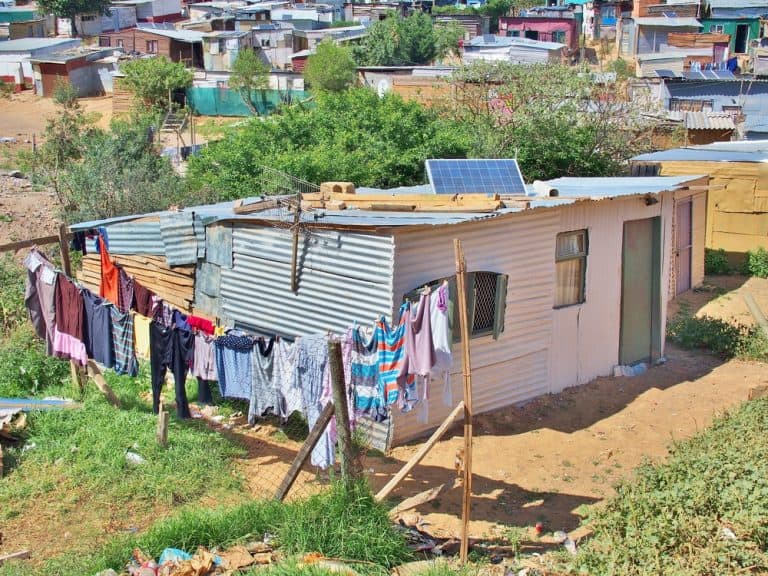Utah Solar Company Broadens the Purpose of Renewable Energy Abroad

A Ugandan child sits in his room, craning his neck upward and fixing his eyes upon the inextinguishable light radiating from the lightbulb atop his desk, revealing a gaze as emboldened as it is impassioned by the mind behind it. “I feel like I’m looking up into heaven,” he remarks. He knows he’s inside his room with a roof above his head, but no longer feels he can be kept inside anything.
His experience is now shared by many other children and families in Uganda, and 1heart1mind is the non-profit behind it.
Keven Jensen, 55, and Scott Cramer, 32, are co-owners of Go Solar Group, a company whose story began in 2009 as a non-profit focused on solar initiatives in Zambia and Uganda before splitting the company into two different businesses: One for residential solar in Utah (which has since also expanded into Reno, Nevada and San Antonio, Texas) and one to maintain Jensen and Cramer’s founding vision of energy independence and educational opportunity abroad. To date,Go Solar International now 1heart1mind has provided 4,417,345 hours of extra child study time to Ugandan children.
Where many solar executives see only room for profit and business growth, Keven Jensen sees energy independence, better education for underprivileged children, and the elimination of poverty.
1heart1mind’s founding purpose ranks among the most unique and practical applications of solar power. For every home solar installation completed in Go Solar Group’s current commercial markets in America, the equivalent is contributed in Ugandan shillings for a home solar system via 1heart1mind, which equates to enormous impact for only $100 USD.
“That’s one example of why even a small impact can go a long way in Uganda and other educationally underprivileged areas. In fact, $100 USD could power everything the average Ugandan home needs for quite some time. That’s a small amount to pay for such a vital resource. Where would you and I be without the light we needed to study for exams or cram into the wee hours before midterms and final exams?” Jensen continues.
Although two separate companies, Go Solar Group and 1heart1mind have the same objective, each delivering the impact in separate locations.
“The goal is not to make a profit,” Keven Jensen asserts. “The goal is to perpetuate access to affordable power, which will involve the energy independence solar provides moving forward.”
And the statistics below prove Jensen’s words are true.
1heart1mind’s Major Impact Statistics in Uganda Since 2015
In addition to the millions of extra hours provided in study time for Ugandan children, 1heart1mind has also secured the following benefits for its solar initiatives. The following statistics are based on estimated impact for the life of a single solar light.

-72% of households eliminating kerosene use
-2 hours of additional daylight per day per household
-A reduction in particulate matter equivalent to 1,020 cigarettes
-2,869 solar lights installed
-17,472 lives improved through clean and bright light
-$360,417 USD equivalent in Ugandan family savings
-2 kerosene lamps eliminated per household
-6,178 tonnes of black carbon emissions averted
-2,496 households reached with solar light
As one might gather from the statistics above, 1heart1mind has a threefold mission that solar power facilitates: 1) the elimination of energy poverty 2) education and training and 3) the meeting of basic needs.
So, Why Does 1heart1mind’s Uganda Solar Initiative Work?
Go Solar Group’s Uganda solar project not only stands to benefit the 80 percent of Uganda that would otherwise not have access to grid-tied power, but also stands to provide an environmentally viable alternative to many Ugandan villages’ predominant form of power, kerosene lanterns, which 31 million Ugandans still use to power their daily routines. These kerosene lanterns are expensive, environmentally damaging, and do not provide the additional light hours children need to study, and therefore, the safety that clean light provides to families.
How Go Solar Group’s Customers Can Make an Impact
If an equivalent is given to Ugandan families for every domestic solar install, and a home solar system in Uganda costs roughly $100 USD for 1heart1mind, that gives the organization the capital to finance a solar system. With microloans, solar can be paid for under the same method as kerosene lanterns, but with far better financial, environmental, and socioeconomic outcomes. The typical payoff period for a Ugandan family averages roughly 4 to 6 months.
Weathering the Challenges of Coverage and Service
Although transportation challenges resulting from there being so much distance between service sites make helping the Uganda area more difficult, 1heart1mind continues to reinforce its mission and purpose in spite of adversity, much like the Ugandan communities it serves. “We share a common goal with many of the Ugandan people in wanting to improve our surroundings and the surroundings of others we care about,” notes Go Solar Group CEO/President, Scott Cramer.
Why Solar is Educational Empowerment
Both Jensen and Cramer believe that education always ends up accounting for the differences in social stratification across nations, and this also holds true on Ugandan soil. This is why Jensen has already purchased 5 acres of land upon which he plans to build a primary school, nursery, and dormitory that will hold 350 children and capitalize on the solar power 1heart1mind brings to the area. Jensen also plans to ensure the location provides food and healthcare for the children.
For Jensen, Cramer, and 1heart1mind as a whole, the plan is as it always has been: To continue to shed light on the people and processes that will power our future, communities, and ultimate progress as humankind. Despite the recent 201 Trade Case decision and net metering changes in the American communities Go Solar Group services, Jensen and Cramer maintain that the future of 1heart1mind and its beneficiaries is brighter than ever.



Send a Message
Oops! We could not locate your form.